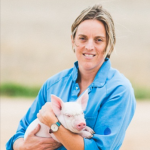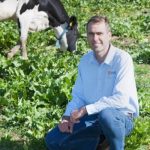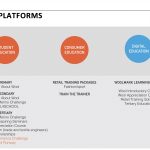A copy of the 2017/18 Annual Report is available on this website.
In July 1997, Australian Wool Testing Authority Ltd (AWTA Ltd) donated $3.00 million of its Unappropriated Profits to a trust vehicle named “The AWTA Ltd Wool Education Trust”. The objectives, as set out in the Trust Deed were:
“The Trustees shall hold the Sum upon trust for the application of the income for charitable purposes being the advancement of education in wool and wool textile science and technology including, without limiting the generality of the foregoing, in all or any of the following methods:
- to support the education of students, growers and others considered to be capable of contributing to the development of the wool industry, from the growing to the textile product stage, including in such subjects as:
- fibre science, including fibre and follicle development, fibre morphology and characteristics, and their effects on processing performance and product properties;
- wool production, including selection, preparation for sale and packaging;
- wool metrology, including testing technology, process control, Total Quality Management techniques and the prediction of processing performance;
- wool and textile marketing, including trading, processing and promotion of products made wholly or partially from wool;
- to fund attendance at educational conferences and to fund scholarships and prizes;
- to fund educational resources, educational conferences, educational programs and educational institutions and colleges; and
- to fund scientific research undertaken for the advancement of education.”
The Deed provided for the appointment of 5 Trustees – 3 by AWTA Ltd (the Founder) and 2 by the Federation of Australian Wool Organisations (FAWO).
In May 2003, the Deed was amended to broaden the objectives of the Trust to allow Trustees to fund education outside the University sector.
In 2004, Australian Wool Innovation (AWI) agreed to donate $4.00 million to the Trust, subject to the Trust Deed being amended to provide for appointments of 3 Trustees by AWTA Ltd, 3 by AWI and 2 by FAWO. The new Deed came into effect on 25th June 2004, at which time the organisation was renamed “Australian Wool Education Trust” (AWET).
Being a not-for-profit trust, AWET is registered with and reports to the Australian Charities & Not for Profits Commission (ACNC). Registration was first required in 2012 and Annual Reports are provided to the ACNC at the end of each calendar year.
SPA hosts electronic identification ‘fact finding’ tour to Victoria.
Members and partners of Sheep Producers Australia recently embarked on a two-day fact-finding trip where they observed electronic National Livestock Identification System (sheep) identification technology in use on Victorian farms, and in saleyards and abattoirs. (continue)
The Trust supports 15 Undergraduate Project Scholarships per year.
These are available to suitable applicants from any University. Each is valued at $7,000 – with $3500 being allocated to the student and the balance to the University to fund its support for the student.
The University and the student may negotiate how these funds will be split and, consequently the split of the funds must be specified in the application.
These scholarships are available to Honours or other appropriate undergraduate students undertaking a one year research project relevant to sheep and wool. This relevance is the most significant criterion considered by the selection panel in assessing applications
Students planning appropriate Masters by Coursework studies can also apply for these scholarships.
Applications for these scholarships must be made directly to the Trust (Download Application Form) and must be supported by an academic referee from the University at which the student is or intends to enrol (download Academic Referee’s Form).
These forms were last updated on 31st October, 2018.
Applications for 2019 scholarships close on Friday 23th November 2018.
The Woolmark Company’s Wool Appreciation Courses are free workshops offering insight into the production pipeline of Merino wool apparel – from fibre to garment – and detail the unique benefits, performance and fabric attributes of wool and wool products. They answer the questions of what is wool, outline the benefits and properties of wool and detail the uses of wool.
Delivered by The Woolmark Company’s technical experts, the Wool Appreciation Courses can be tailor-made for individual companies and educational institutions, using a mixture of cross-media to provide simple and practical explanations of the various processing stages.
These courses are being adapted for on-line learning.
So far two courses are available:
Wool Introductory Course – 25-minute-high level marketing/educative piece.
Wool Appreciation Course – 3-hour piece that looks at the fibre from farm to fashion.
At completion of the Wool Appreciation course you can gain your own Wool Appreciation Badge from Credly. This can be displayed on your own digital professional portfolio such as Linkedin!
This has been a busy week.
Universities
Trustees met with representatives of a number of Universities delivering wool and sheep education. The Trust has been a major financier of the hub and spoke model, wherein UNE provides the hub, and other “spoke” Universities enable their students to engage with the sheep and wool modules offered by UNE.
The good news is that UNE has decided to place Dr Emma Doyle on permanent tenure. Emma was employed by UNE in 2007 in a non-tenured position, funded by AWET. She will now take total responsibility for co-ordinating delivery of AWET’s modules by UNE. In making this decision UNE is demonstrating its continued commitment to sheep and wool education.
AWI was represented at the meeting by Ms Julie Davies who provided all present with an update of education programs AWI is developing, some also co-funded by AWET.
Fashion Schools
We also met with a number of representatives of Australia’s Fashion Schools. AWET has been providing a number of grants for students in these schools to create final year designs strongly based on wool.
AWI was also represented at this meeting by Ms Kelly McAvoy who outlined a number of exciting programs to incentivise fashion school students, here and throughout the world, to increase their involvement with and commitment to wool.
(Click the thumbnail below to view image).
2018 Wool training workshops
A series of wool training workshops will be conducted at Deakin University in May 2018 on behalf of the Australian Wool Education Trust (AWET). The workshops will be delivered at the Institute for Frontier Materials (IFM) at the University’s Geelong–Waurn Ponds Campus, with classes delivered by experts in the various fields. All teaching materials have been developed by Australian Wool Innovation.
The workshops are designed for people working in textile manufacturing to improve their theory skills in wool processing.
Each subject will be delivered in an intensive format of eight hours per day over either one or two days. A formal assessment will be carried out on completion of the workshop.
Subject descriptions
Wool fibre science
This six-hour unit gives a strong overview of the wool fibre. It concentrates on the structure, physics, chemistry, setting and felting of wool. It is a prerequisite for all of the other units offered in this training.
The scouring of raw wool
This two-day unit will cover the opening and scouring of wool fibre. Topics include the preparation of wool for scouring, scouring processes, carbonisation, grease recovery, testing procedures and effluent treatment.
Worsted top-making
This two-day unit looks at the preparation of wool fibres for both worsted and woollen spinning. Topics include fibre opening, blending, worsted carding, carding, drawing, combing and roving. The subject also covers quality assurance of top, TEAM equations and top treatments.
Worsted and woollen spinning
This one-day unit examines the spinning of wool on both the worsted and woollen spinning systems. The unit covers preparation of fibres for preparation of fibres for spinning, woollen carding, worsted spinning, woollen ring spinning, variations and alterations to ring spinning and post-spinning operations. It is recommended that the Worsted top making unit is taken in conjunction with this unit.
The dyeing of wool
This two-day unit covers the dyeing processes of wool. It looks at the way dye interacts with the wool fibre, preparation and dyeing methods for wool and wool blends, equipment used for dyeing, side effects, the dye house laboratory and environmental concerns.
Wool fabric finishing
This two-day unit covers the fabric finishing of wool fabrics. It discusses dry, wet and chemical finishing, typical finishing paths, analysis techniques, faults, performance standards and environmental concerns.
Workshop details
Date |
Course Title |
Lecturer |
| 1st May 2018 | Wool fibre science | Dr Chris Hurren |
| 2nd May 2018 | The scouring of raw wool | Dr Jock Christoe |
| 8th May 2018 | Worsted top-making | Mr Gary Robinson |
| 10th May 2018 | Worsted and woollen spinning | Mr Gary Robinson |
| 15th May 2018 | The dyeing of wool | Dr Rex Brady |
| 17th May 2018 | Wool fabric finishing | Dr Rex Brady |
Enrolment:
Register at Eventbrite using the links above. For questions relating to the workshop please email Chris Hurren (christopher.hurren@deakin.edu.au). The cost of the workshops is $55/workshop. This includes the cost of a printed manual.
Download a copy of the brochure.
Top young WA university research graduates celebrated at agriculture forum
By Sheep Central, 26 March 2018
MURDOCH University graduate Lydia Inglis was awarded the Young Professionals in Agriculture Forum top honours for 2018 in Perth last week.
Lydia, a student at Murdoch University, was awarded an AWET scholarship in 2017. Her thesis was supervised by Associate Professor Andrew Thompson.
Click here to read the abstract for Lydia’s thesis.
Successful SPA leadership program participants announced.
Sheep Producers Australia has selected 14 participants to be part of its Sheep Industry Leadership Program, to be run in 2018.
The successful applicants work throughout the sheepmeat value chain representing producers, agribusiness, researchers, marketing and communications and industry consultants – from all sheep producing states.
They include:
- John Murdoch, NSW
- Jock Munro, NSW
- Peter Thornton, NSW
- Allison Mudford, NSW
- Steph Fowler, NSW
- Johnny Gardner, Vic
- Craig Hinchliffe, Vic
- Catriona Nicholls, Tas
- George Nichols, Tas
- Louisa Street, Tas
- Karen Smith, WA
- Susanne Levett, WA
- Sam Anderson, Qld
- Graham Clothier, SA
Sheep Producers Australia President Allan Piggott said it was only the second year that the professional development program had been run, as part of the SPA and Meat & Livestock Australia joint initiative, Building Leadership Capability for the Sheep Industry.
“The initiative is designed to ensure the Australian sheep industry attracts, develops and retains people with the right leadership skills to contribute to the long-term viability of the industry,” Mr Piggott said.
“As part of a review undertaken by SPA two years ago, during its development of the Sheep Industry Strategic Plan 2020, it was determined that there were 150 leadership positions within the industry which were being filled by only about 50-60 people.
“So we know there is a real need to be investing in the current and future leaders of our industry to ensure the sheep industry has a strong, united voice to government and service providers.”
The program is run by the Australian Rural Leadership Foundation and occurs over three sessions – two face-to-face and one online.
The first face-to-face session is in Queensland in February 2018, where participants will embark on an outdoors experiential learning experience and classroom activities understanding their role in the industry.
Session two will be held in March and April where participants will be guided through online programs and the final session is set for May and will coincide with a range of SPA Board and other leadership activities.
Each of the 15 positions in the program is valued at more than $10,000 which covers all training, course materials and travel to the two face-to-face sessions.
To find out more about SPA’s investment in leadership programs, visit http://sheepproducers.com.au/industry-priorities/building-industry-capability/
Keynote speakers announced:
Animal Production 2018 is excited to announce four keynote speakers invited to speak on innovation, big data, heat stress and consumer demands.
The conference is on 2-4 July in Wagga Wagga NSE>
The program is taking shape! Keynote speakers join the four leading scientists we’ve already announced to present the Memorial Lectures.
 |
Edwina BeveridgeFarmer and Innovator, NSWOPENING SESSION |
Topic: Edwina will highlight the need for innovation in Australia’s livestock industries, drawing on the innovation examples in her own farm system to meet consumer needs.
Edwina and her husband own and operate Blantyre Farms, a 2,200 sow pig farm and a mixed farm of sheep, cattle and crops. In the last ten years, the pig farming operation has doubled in size, plans are underway to continue expansion. In operation for five years, a methane digestion system captures methane gas from pig manure and converts it into electricity. Blantyre also utilises other people’s food waste products for pig feed and saves thousands of tonnes of landfill.
Edwina has a commerce degree from the University of Sydney and is a former chartered accountant turned pig farmer. Edwina is on the board of Australian Pork Limited, the Deputy Chair of the NSW Farmers Pork Committee and is a member of the NSW Primary Industries Ministerial Advisory Committee. She has 3 children, is involved in her local community and is proud to be a farmer.
 |
Dr Cameron ClarkUniversity of SydneyBIG DATA – WHAT’S THE |
Topic: Dairy farming within boundaries: Taking away complexity whilst adding efficiency through technology
Dr Cameron Clark is enabling a step-change in livestock productivity and welfare both in Australia and internationally through novel, collaborative and interdisciplinary research. This research is changing the global focus of farming towards the individual production animal to improve efficiency and welfare by revealing the value of technology, data and associated advanced precision livestock systems. He plans to expand on this highly innovative research to link the individual production animal and farm practice with the needs of the market and in so doing, add significant value to the food produced in systems that exceed the welfare demands of society. Cameron is a senior research fellow at the University of Sydney.
 |
Dr Jay JohnsonUnited States Department
|
Topic: Evaluating and mitigating the impact of heat stress on livestock well-being and productivity
Dr Jay Johnson is a Research Animal Scientist with the USDA Agricultural Research Service in West Lafayette, Indiana specializing in Environmental Stress and Nutritional Physiology. He received his Bachelor and Masters degrees from the University of Missouri, his PhD from Iowa State University, and completed his postdoctoral training at Purdue University. The overall goal of Dr Johnson’s research program is to evaluate the impact of environmental and production stressors on livestock physiology, welfare, and metabolic health to develop management and nutritionally-based mitigation strategies that will improve animal well-being and productivity.
Specific areas of research include the effects of weaning and transport stress on the well-being of swine provided L-glutamine as an antibiotic alternative, the impact of in-utero heat stress on postnatal productivity and bioenergetics in swine, and the use of rapid versus gradual cooling after extreme heat events.
 |
Prof Wendy UmbergerUniversity of Adelaide, AusCONSUMER DEMANDS |
Topic: Demand for Animal Welfare and Ethical Attributes in Meat: What do consumers really value?
Professor Wendy Umberger is the Foundation Executive Director of the Centre for Global Food and Resources (GFAR) at the University of Adelaide. She was the 2016-2017 President of the Australasian Agricultural and Resource Economics Society (AARES). She is a Fellow of Food Standards Australia New Zealand (FSANZ), serves on the Governance Board of the International Crops Research Institute for Semi-Arid Tropics (ICRISAT) and the editorial board of Applied Economic Perspectives and Policy.
She has spoken globally on topics related to her behavioural economics research, which uses innovative methods to understand drivers and implications of changing consumer and producer behaviour on food systems. She is also studying the impact of urbanisation, modern retail transformation and development programs on food consumption patterns, diet quality and longer-run health and livelihood implications across the region, including Australia, Indonesia, Vietnam and Fiji. She holds a Bachelor of Animal Science (1996) and Masters in Economics (1998) from South Dakota State University and a PhD in Agricultural Economics (2001) from the University of Nebraska-Lincoln. Wendy was raised on a beef cattle and grain farm, which is still owned and operated by her parents in South Dakota USA.
The Trust supports 15 Undergraduate Project Scholarships per year.
These are available to suitable applicants from any University. Each is valued at $7,000 – with $3500 being allocated to the student and the balance to the University to fund its support for the student.
The University and the student may negotiate how these funds will be split and, consequently the split of the funds must be specified in the application.
These scholarships are available to Honours or other appropriate undergraduate students undertaking a one year research project relevant to sheep and wool. This relevance is the most significant criterion considered by the selection panel in assessing applications
Students planning appropriate Masters by Coursework studies can also apply for these scholarships.
Applications for these scholarships must be made directly to the Trust (download application form) and must be supported by an academic referee from the University at which the student is or intends to enrol (download form for academic referee’s reference).
These forms were last updated on 28th October, 2016.
Applications for 2018 scholarships close on Friday 24th November 2017.
